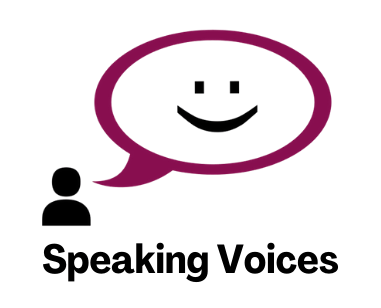The ability to express your thoughts clearly and confidently can distinguish you from your peers and propel your career forward. Despite this, numerous professionals find it challenging to speak with confidence in public or during meetings. If you are facing this struggle, take comfort in knowing that you are not the only one. The positive aspect is that confidence is a skill that can be honed and improved.
In this blog post, we’ll explore some practical tips to help you enhance your speaking abilities in the workplace, enabling you to convey your thoughts with clarity and assertiveness. Whether you’re presenting at a board meeting, participating in a collaborative discussion, or networking with colleagues, adopting these strategies will empower you to express yourself with confidence.
1. Embrace Your Expertise In The Workplace
For those who frequently communicate, it is crucial to acknowledge the wisdom and expertise you possess. Understand that you hold valuable perspectives to offer. Before speaking, acknowledge that your viewpoint is unique and that your peers are keen on hearing from you. Showcase your strengths, whether they are industry knowledge or specific skills, and knowing your areas of expertise allows you to communicate with confidence.
2. Cultivate A Positive Mindset
A positive mindset in the workplace can transform your speaking experience. Approach each speaking opportunity with an optimistic outlook, focusing on the impact you can make rather than what might go wrong. Replace negative self-talk with affirmations, for example, remind yourself, “I can communicate effectively” or “I have valuable insights to share.” This shift will help boost your confidence over time.
3. Engage With Your Audience
Frequent speakers often overlook the power of audience engagement. Make an effort to connect with your listeners. Ask questions, encourage discussions, or invite feedback during your conversations. By promoting interaction, you not only create a more dynamic atmosphere but also alleviate some of the pressure off yourself. Remember, a conversation is a two-way street, your audience’s responses can provide a valuable context that supports your message.
4. Focus On Clarity, Not Perfection
Striving for perfection can lead to unnecessary stress. Instead, concentrate on conveying your message clearly and effectively. It’s important to remember that your audience values clarity over flawless delivery. Use simple language, structure your thoughts logically, and pause to allow your colleagues at work to absorb what you’re saying. This mindset will help you feel more at ease and reduce performance anxiety.
5. Take Ownership Of Mistakes
Nobody is perfect and mistakes are a natural part of speaking. Instead of fearing errors, adopt an approach of ownership. If you misspeak or forget a point, acknowledge it with grace. Your audience will respect your authenticity, and the ability to handle mistakes confidently can actually enhance your credibility. Remember, it’s not about being error-free, it’s about how you respond.
6. Harness Body Language To Boost Confidence
Your body language plays a crucial role in how your message is received. Ensure that you maintain open and confident body language. Stand tall, use purposeful gestures, and make eye contact to connect with your audience. Research shows that confident body language can also help you feel more self-assured. By embodying confidence, you’ll find that the words come more naturally.
7. Implement Mindfulness Techniques
Integrating mindfulness practices into your work routine can significantly improve your confidence in speaking situations. Techniques such as deep breathing, grounding exercises, or short mindfulness meditations can help centre your thoughts and reduce anxiety. Consider taking a moment to focus on your breath before speaking, this can help calm your nerves and clear your mind, allowing for a more confident delivery.
8. Seek Continuous Growth and Development
Just because you’re a frequent speaker doesn’t mean your growth and development should stagnate. Stay open to learning new techniques and strategies to enhance your communication skills. Participating in workshops or training sessions can expose you to different styles of speaking and effective communication techniques, helping you further refine your abilities.
—————————————————
Being a frequent speaker in the workplace presents both opportunities and challenges. By embracing your expertise, cultivating a positive mindset, engaging your audience, and focusing on the clarity of your message, you can navigate any speaking situation with confidence. Remember, confidence is a journey, and with each communication opportunity, you will continue to grow. So, why not take that next step? Sign up for the 1:1 public speaking course, and empower yourself to elevate your speaking skills and enhance your speaking journey! Your confident voice awaits!
Thank you for reading this article, if you want to support me, consider leaving a tip to help me create more content like this. Every tip helps me enhance my blog and bring you more insights, tips, and stories!

